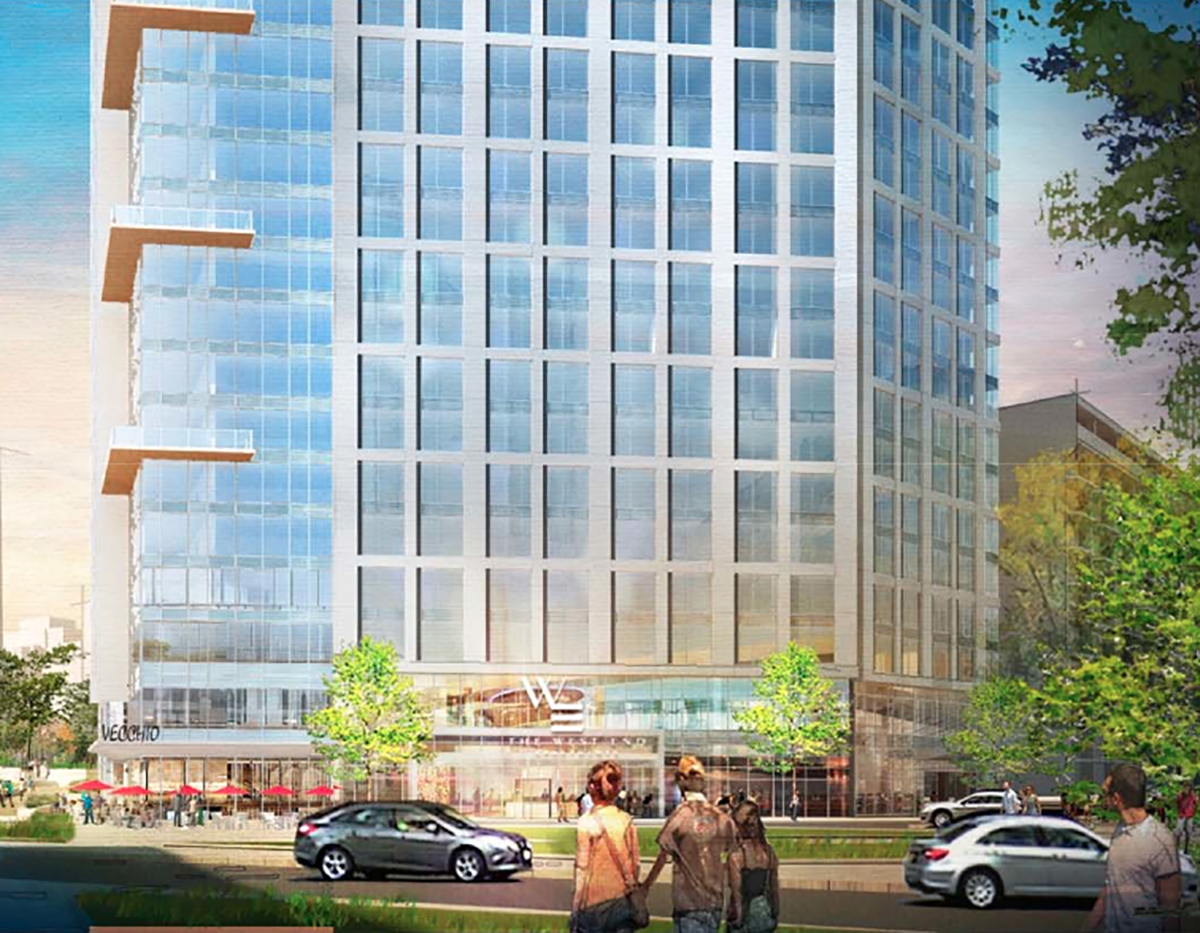GentriWatch: West Enders Warn Mission Hill Against BRA, Chicago Developer
Welcome to GentriWatch, where we look for signs of gentrification happening around the city.

Rendering by Elkus Manfredi Architects, via Boston Redevelopment Authority
How about this for an evergreen sentence: West Enders are unhappy with the Boston Redevelopment Authority.
The Garden Garage project in the West End is moving along as planned, thanks to a recent stamp of approval from the BRA. The 44-story, 470-unit residential tower, developed by Chicago-based Equity Properties, will rise above Lomasney Way upon the demolition of the Garden Garage. The $390 million project include 775 underground parking spots.
West End residents who opposed the tower compare what they believe is the BRA’s disregard for their concerns to the robust urban renewal that ravaged the neighborhood in the 1950s.
“The radical change in the demographic is going to tear down what the residents have been working for over the last 25 years—to build it into a cohesive neighborhood,” West End Museum curator and a 26-year resident Duane Lucia told Boston.com’s Megan Turchi. The BRA previously collaborated with the West End Museum for an exhibit that was meant to serve as a mea culpa from the agency, currently seeking an extension of its urban renewal power from state and local officials, to the neighborhood.
Equity has another tower in the works on Worthington Street in Mission Hill, which is being met with similar opposition from locals. Turchi reports that Kathleen Ryan, a longtime West End resident and opponent of the Garden Garage project, sent an email to organizers of the neighborhood group “No Mission Hill Tower” warning what could soon happen to their neighborhood.
• • •
Besides West Roxbury and Roslindale, one Boston neighborhood currently gentrifying—as opposed to the already intensely gentrified Fenway and South End—is Jamaica Plain, particularly Egleston Square.
David Ertischek of the Jamaica Plain News sat down with State Rep. Liz Malia, a Democrat, to discuss a wide range of topics, from transportation goals to her history of activism in the community. (Malia was once arrested for a sit-in protest against the foreclosure of a two-unit house in Egleston Square, which was razed to build a four-unit house.) The first part of their interview, inevitably, touched on gentrification.
“One of the best descriptions I heard about it—working in Egleston Square—it’s a double-edged sword. It’s a sign that the value is appreciated and being recognized, but if there’s no balance to it—it kills the beast, that is its host,” Malia said when asked if gentrification is good or bad.
“We have a lot of nice restaurants in JP. Will we have an economy that can support them?” she continued. “The old Oil Hughes lot that is being developed, will those people spend the money to get in there and live across from a decrepit bus yard that the state hasn’t spent money on? It’s going to be hard to tell… At some point there will be a crisis in terms of transportation. There were days in Boston where people were fleeing the city and now people are coming back. It’s going to change the nature of the city.”
You can read the rest of the interview, including a great bit about affordable housing, here.
Notice something changing in your neighborhood? Let me know: kclauss@bostonmagazine.com, @KyleClauss.


